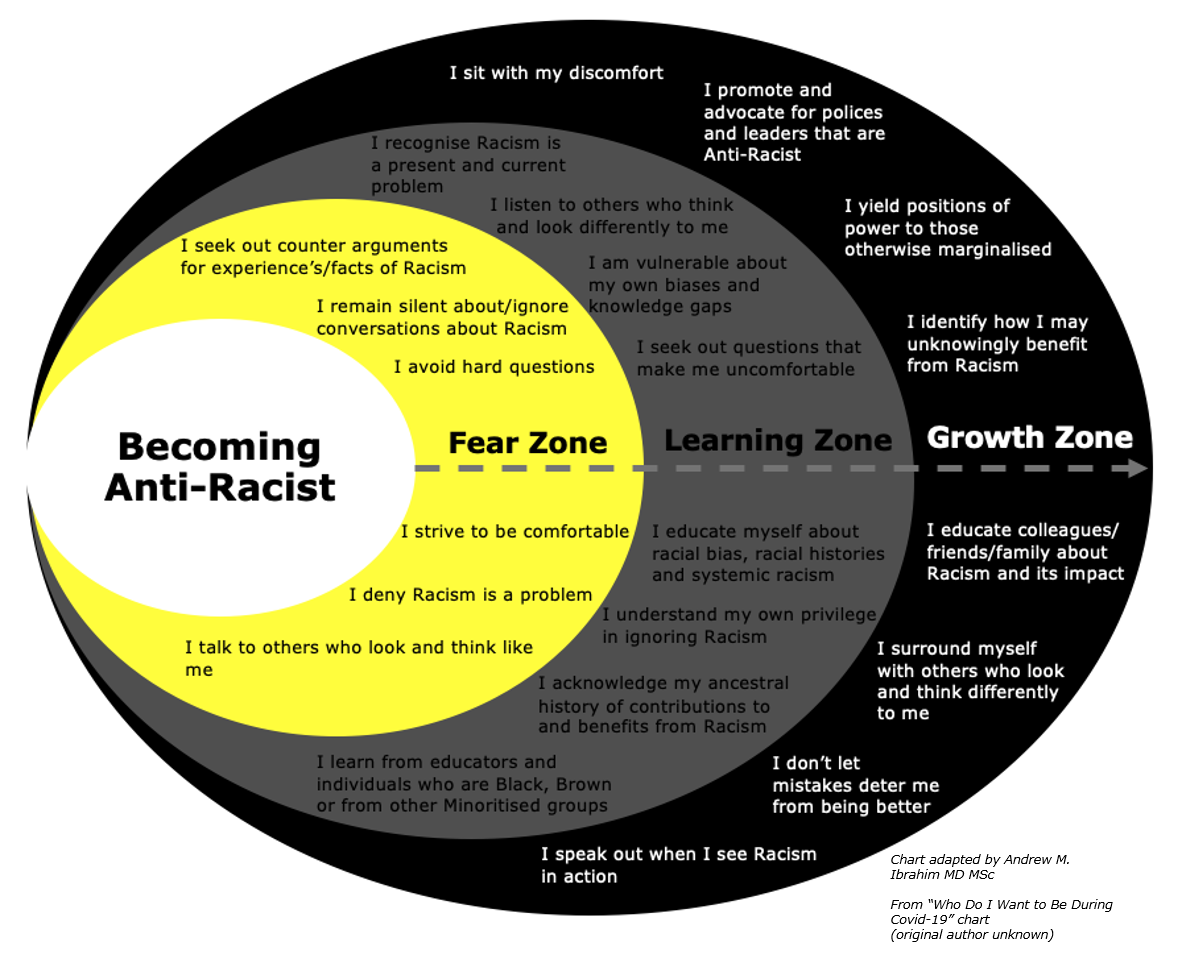But I’m Not Racist
And we’re glad you aren’t!
Because you care that you’re not, here are some questions we hope for you to explore:
How often have you actually been called racist?
Do you look to others for confirmation that you are not racist? Why is that important?
Do you understand the experiences of marginalized people?
Do you care enough about these problems and the people it harms, even if it doesn’t affect you?
Do you know how you could begin correcting the problem? Are you willing to?
Are you more scared of being called racist than supporting those who actually experience racism?
Being anti-racist is a constant active process of identifying and eliminating racism by changing systems, structures, policies, practices and attitudes, so that power is redistributed and shared equitably.
Everyday actions can change and prevent the profiling, persecution and dehumanization of marginalized peoples.
Examples of everyday alliance
- educating yourself on their perspectives and struggles without involving their effort
- listening with compassion when they confide in you about issues they face
- ensuring they feel safe and welcome around you and your community
- opening your wallet to support grass-root or non-profit causes
- asking your workplace to donate to a cause or create programs that empower them and their advancement
- volunteering your time to local community efforts where they are leaders or benefactors
- helping them secure and create safe spaces for people like them to meet
- advocating for or mentoring them in the discipline or career they want to pursue
- introducing underrepresented people at work to opportunities and connections that support their career goals
- ensuring their perspectives are included in large meetings
- having conversations with peers to address discriminatory behaviour or subtle jokes
- reminding people of acceptable conduct in group settings
- being attentive to physical, disability or mental health needs if you are having a gathering
- contacting your local officials about systemic issues that affect their lives in your area

Ally Resources
How to Promote Racial Equity in the Workplace
10 Steps to Non-Optical Allyship
Countering and Dismantling Islamophobia
Zen and the Art of Talking To Conspiracy Theorists
Work In Tech?
How The Tech Community Can Provide Support to BLM
Statements Made By Top Tech Companies on Racial Justice, BLM, and George Floyd
Overwhelmed?
We suggest talking with peers from your background and to seek support through counseling.
If you are in crisis or you think you may have an emergency, call your doctor or 911 immediately.
Better Help https://www.googleadservices.com/pagead/aclk?sa=L&ai=DChcSEwjk97regK74AhVSbG8EHWfNBKYYABAAGgJqZg&ae=2&ohost=www.google.com&cid=CAESbOD2gBCIdCNwwrqLrwDERxtBNQ4K9BGT0qJWVKC7XkQ5uuTI20cSRNoQmfLLkE2LCRua7erOU0r7pqk7UtUlQT4pR8GPypk0qcrknA5nneXOFv9VotkJRYEKWH91CRjjFqKrZvyb96eQEqMvuw&sig=AOD64_30JevrOI7tFcNKP2qVHUCB2tGyBA&q&adurl&ved=2ahUKEwjGsLLegK74AhVJE80KHcgECvIQ0Qx6BAgFEA
I Am Racist
We hope this page provided you with meaningful questions about your decision to identify as racist or white supremacist. If you are wondering, there are resources for exploring a departure from extreme or gang lifestyle.